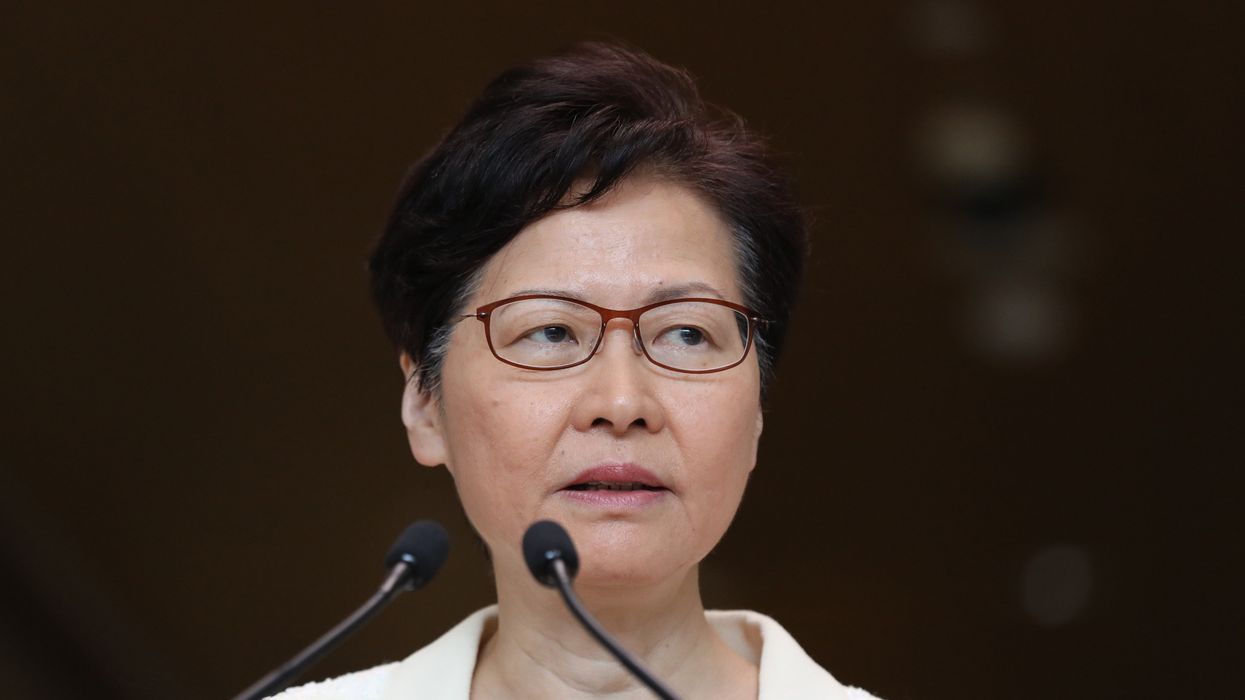
SeongJoon Cho/Bloomberg via Getty Images

But the government refused the protesters' demands for other pro-democracy reforms
Following months of protests, the leader of Hong Kong has agreed to scrap a bill that would have allowed residents of the former British territory to be extradited to mainland China to stand trial.
Carrie Lam, the leader of Hong Kong appointed by the Chinese government, announced the decision on Wednesday.
"We must find ways to address the discontent in society and look for solutions," Lam said on Wednesday, according to CNN. "After more than two months of social unrest, it is obvious to many that this discontentment extends far beyond the bill."
Before this, the government of Hong Kong had shelved the bill, but had refused to get rid of it entirely. More than 1 million of the city's roughly 7.2 million inhabitants had participated in protests over this issue.
Since Hong Kong was returned to China by the United Kingdom in 1997, it has seen some of its freedoms slowly chipped away. China had promised to utilize a "one country, two systems" model of governance for Hong Kong for at least the first fifty years, in order to ease the transition, but has periodically put laws in place to bring Hong Kong more into line with Chinese rule.
This extradition bill was just the latest example of this type of anti-democratic change. The people of Hong Kong feared that the Chinese government would use it to make opposition leaders disappear.
It is not unreasonable for the people of Hong Kong to fear this outcome. Over the past few years, China has rounded up more than 1 million of its own people who belonged to the mostly-Muslim Uighur minority and placed them in re-education camps.
Olivia Enos, the senior policy analyst for the Heritage Foundation's Asian Studies Center, called Lam's decision to withdraw the bill "an unmitigated win for protesters."
"Unlike her previous declaration that the bill was dead, but it still technically remained in play, there is not threat of the bill resurfacing," Enos told TheBlaze. She said that the bill had "posed an existential threat to freedom in Hong Kong."
In addition to getting rid of the protest bill permanently, the protesters had also demanded reforms in Hong Kong including free elections and a halt to the prosecution of the more than 1,000 protesters who had been arrested (a demand Lam called "contrary to the rule of law"), as well as the creation of an independent commission that would investigate the city's police department.
The protesters had also demanded that the government stop refering to them as "rioters," but Lam dismissed this idea, saying that there was "no legal effect on how such incidents are described or categorized."
Lam specified in her address on Wednesday that the government would not budge on any of these four additional issues. She urged the protesters to disband now that the extradition bill was gone, saying "let's replace conflicts with conversations and let's look for solutions."